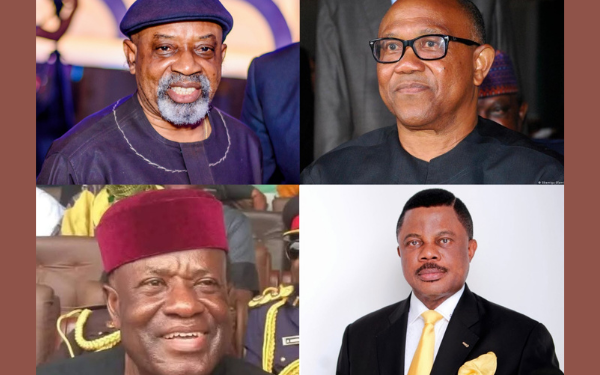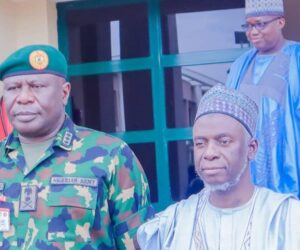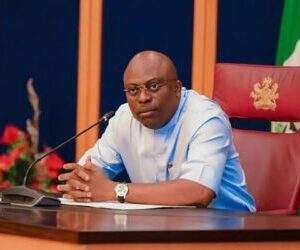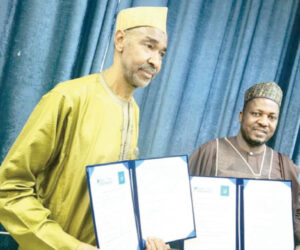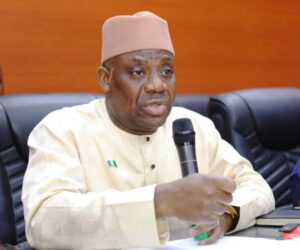Over the past two decades, elections in Anambra State have primarily revolved around the rivalry between the Peoples Democratic Party (PDP) and the All Progressives Grand Alliance (APGA), a party founded in 2002 that has held sway in the state since 2006.
Anambra has elected five governors since Nigeria’s return to democracy in 1999 — the late Chinwoke Mbadinuju, Chris Ngige, Peter Obi, Willie Obiano, and the incumbent, Charles Soludo. Each of the previous four governors left a distinct mark on the state’s development, though not without controversies rooted in political patronage, corruption, and institutional instability, among others.
This analysis reviews their major achievements and shortcomings, offering insights into Anambra’s evolving leadership and its implications for governance in Nigeria’s South-east.
Chinwoke Mbadinuju (1999–2003)
The late Mr Mbadinuju became Anambra’s first democratically elected governor in 1999 under the PDP. He laid the foundation for some infrastructural projects, notably the establishment of the Anambra State University (now Chukwuemeka Odumegwu Ojukwu University) at Igbariam and Uli, his hometown.

Nicknamed “Odera”, Mr Mbadinuju created the Anambra Vigilante Services (AVS), which evolved into the notorious “Bakassi Boys.” Initially hailed for fighting crime in Onitsha and other commercial centres, as well as in other south-eastern neighbouring states, the group later gained notoriety for extrajudicial killings and human rights abuses. The members were also accused of being political thugs who delivered the governor’s bidding.
Internal party crises and tensions with political godfathers marred Mr Mbadinuju’s administration. The education sector suffered prolonged teachers’ strikes due to unpaid salaries, while the health sector declined amid allegations of financial mismanagement and a surge in HIV/AIDS infections. By the end of his tenure, public discontent had deepened, and perceptions of his legacy remained sharply divided between those who viewed him as an order-keeper and those who saw him as a repressor.
Chris Ngige (2003–2006)
Chris Ngige’s tenure began with controversy following a disputed 2003 election, later overturned by the courts in favour of Peter Obi, then of the All Progressive Grand Alliance (APGA). Despite this, his three-year administration is still remembered for aggressive infrastructural expansion and fiscal discipline.

Defying political godfathers who had backed his emergence, Mr Ngige, at the time a member of the PDP, launched a statewide road construction drive that won public praise for quality and speed. His reforms restored public trust in governance, even as political crises dominated his term.
Though short-lived, his administration’s focus on public works laid the groundwork for subsequent infrastructural policies in the state.
Peter Obi (2006–2014)
Peter Obi’s eight-year tenure marked a turning point in Anambra’s governance style. Assuming office after a protracted legal battle, he was praised for championing fiscal prudence, education reform, and institutional strengthening.
Under his leadership, Anambra consistently ranked among Nigeria’s best-performing states in WAEC results — a success attributed to his decision to return mission schools to their original church owners and support them with public funds.
Mr Obi, who was governor under APGA, reportedly left behind savings exceeding ₦75 billion, earning him praise for financial discipline.

However, his government faced criticism for neglecting infrastructure and delaying local government elections. Political friction with the state assembly and his successor, Willie Obiano, also exposed deep rifts within the state’s leadership.
While Mr Obi built a reputation for transparency, a PREMIUM TIMES investigation under the Pandora Papers revealed he failed to declare offshore assets to the Code of Conduct Bureau, contradicting his public image of full accountability.
Willie Obiano (2014–2022)
Willie Obiano also ran for Anambra governorship on the APGA ticket. His administration witnessed bold infrastructural projects amidst allegations of fiscal recklessness.
Among his achievements were the construction of the Anambra International Airport, three flyovers in Awka, and the Anambra International Convention Centre. His “Community Choose Your Project” initiative, which empowered each of the state’s 179 communities with ₦20 million for self-selected projects, was widely praised.

Under Mr Obiano, Anambra attained the status of an oil-producing state and expanded its agricultural output, particularly in rice production.
However, his tenure faced major setbacks. Hours after leaving office, he was arrested by the Economic and Financial Crimes Commission (EFCC) for allegedly diverting over ₦4 billion in security votes — a case still in court. Critics also accused him of leaving behind a substantial debt burden, despite inheriting substantial reserves from Mr Obi.
Anambra’s education standards declined under his watch, and security deteriorated in his second term, reversing earlier gains. His tenure also ended on a controversial note following a public altercation between his wife, Ebelechukwu, and Bianca Ojukwu at his successor’s swearing-in ceremony.
Patterns and lessons
A comparison of the three most recent administrations reveals a clear shift from fiscal prudence to heavy borrowing. While the Obi administration emphasised savings, Mr Obiano’s term saw increased debt and large-scale but unevenly executed projects. On the other hand, Mr Ngige’s reform-driven approach arguably remains a reference point for disciplined governance despite its short duration.
Analysts have argued that the trajectory of Anambra’s past governors reflects a state defined by both “resilience and volatility” — one where visionary leadership often collides with political interference.
The legacies established by these past leaders offer a critical lesson in shaping a more accountable and sustainable future for Anambra State.

